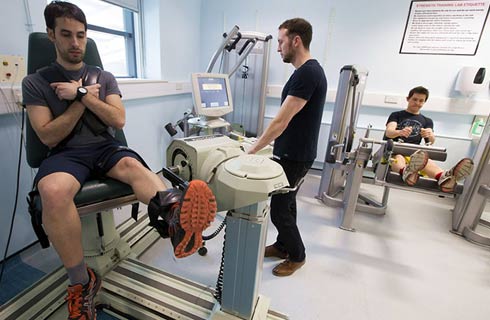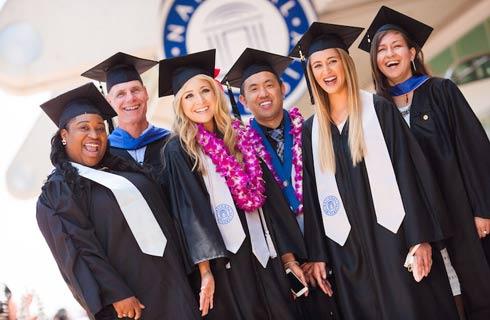Master of Arts in Music

学历文凭
Masters Degree

专业院系
Music

开学时间

课程时长

课程学费

国际学生入学条件
IDP—雅思考试联合主办方

雅思考试总分
6.5
- 雅思总分:6.5
- 托福网考总分:80
- 托福笔试总分:160
- 其他语言考试:Minimum Duolingo score requirement: overall score of 105 As of the Fall 2024 admissions cycle, Duolingo English Test scores are no longer accepted as a language proficiency exam (effective July 1, 2023).
CRICOS代码:
申请截止日期: 请与IDP联系 以获取详细信息。
课程简介
相关申请
 预科
预科 奖学金
奖学金 实习机会
实习机会 在校学习
在校学习 跨境学习
跨境学习 校园授课-线上开始
校园授课-线上开始 在线/远程学习
在线/远程学习
开学时间&学费
学费信息仅供参考,请与IDP联系以获取详细信息
| 开学时间 | 时长 | 学费 | 地点 |
|---|
学校排名

世界排名401
数据源:
泰晤士高等教育世界大学排名
关于佐治亚大学

乔治亚大学历史悠久,校园内最为古老的学建立于1801年,在大学部课程方面,提供了173个不同领域中19种的学士学位,而在研究所课程方面,提供了130个不同领域中25种的学士学位,丰富而多样的课程内容,让许多海内外的学生都将乔治亚大学列为主要选择之一。乔治亚大学开设79种学位项目,每年招收26000多名本科生和9000多名研究生。该校在《2011美国新闻与世界报道》的全美公立研究型大学排第18位, 其传播学院与公共行政学院更为全美最顶尖的五所学校之一, 并为美国电视花生人奖(peabody Awards)的主办大学, 被誉为美国南方三所公立常春藤大学之一。乔治亚大学拥有不少历史建筑群与美国南方特色建筑, 大部分皆座落于南与北校园, 除了传统历史建筑外, 最近十几年乔治亚大学不断的扩建硬件设备, 包括新的学生活动中心, 学生学习中心,大学艺术博物馆及演奏厅和全新的新学生宿舍。乔治亚大学位于佐治亚州东北部的雅典城(Athens),距州府亚特兰大90公里,是全美国最大的大学城之一。乔治亚州农业很发达,旅游业也很盛, 每年由州外之地来此游乐的人, 花费多至四亿美元。雅典城附近为幅员辽阔的森林,十分潮湿。这里气候变化明显,夏天为潮湿的天气,平均温度摄氏20度-32度。冬天气候干冷,会到摄氏零度左右。雅典城每年有许多艺术文化的盛宴,生活便利,课业之余可以参观城内的博物馆、艺术馆,或是从事户外的休闲游憩活动。
本校相关课程

Bachelor of Arts in Philosophy
学历文凭
Bachelor Degree
开学日期
课程费用总额


Bachelor of Science in Physics
学历文凭
Bachelor Degree
开学日期
课程费用总额


Bachelor of Science in Physics and Astronomy
学历文凭
Bachelor Degree
开学日期
课程费用总额


Bachelor of Science in Plant Biology
学历文凭
Bachelor Degree
开学日期
课程费用总额


Bachelor of Arts in Political Science
学历文凭
Bachelor Degree
开学日期
课程费用总额


Bachelor of Science in Agriculture - Poultry Science
学历文凭
Bachelor Degree
开学日期
课程费用总额

其他相关课程

音乐文学士[一般]
 滑铁卢大学
滑铁卢大学学历文凭
Bachelor Degree
开学日期
课程费用总额


音乐文学士(荣誉学位)
 圣弗朗西斯泽维尔大学
圣弗朗西斯泽维尔大学学历文凭
Bachelor Degree with Honours
开学日期
课程费用总额


音乐学硕士
 达尔豪斯大学
达尔豪斯大学学历文凭
Masters Degree
开学日期
课程费用总额


音乐学士
 达尔豪斯大学
达尔豪斯大学学历文凭
Bachelor Degree
开学日期
课程费用总额


音乐文学士
 爱德华王子岛大学
爱德华王子岛大学学历文凭
Bachelor Degree
开学日期
课程费用总额


音乐教育学士
 爱德华王子岛大学
爱德华王子岛大学学历文凭
Bachelor Degree
开学日期
课程费用总额










 美国
美国